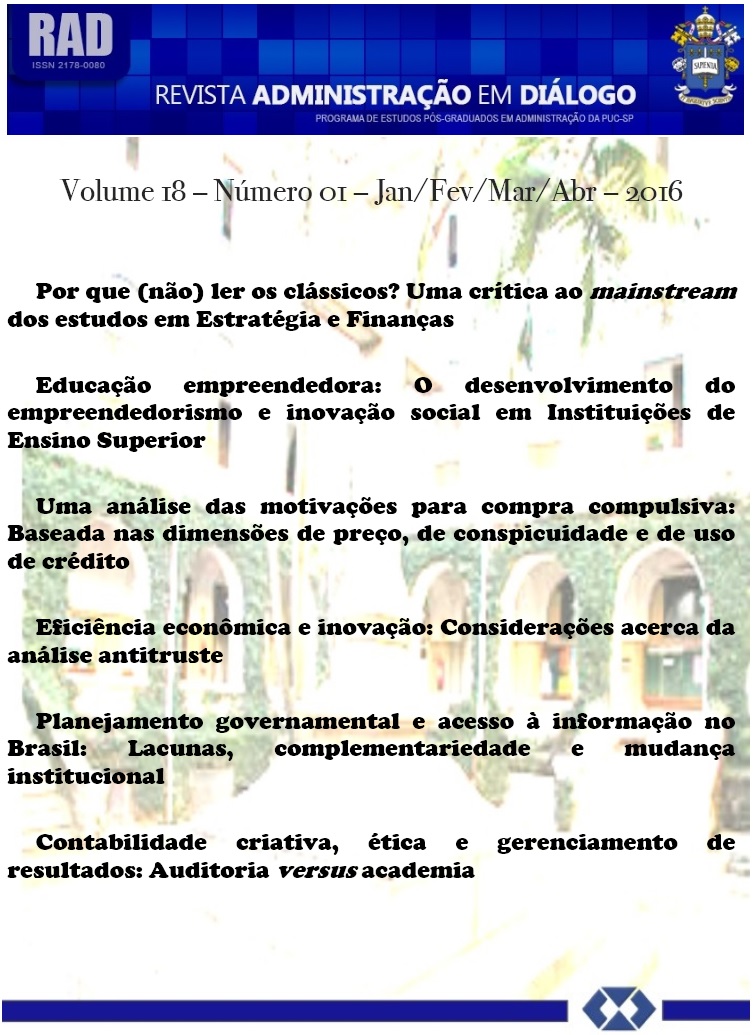Contabilidade Criativa, Ética e Gerenciamento de Resultados: Auditoria versus Academia
DOI:
https://doi.org/10.20946/rad.v18i1.17161Abstract
O objetivo deste artigo é examinar a percepção de auditores e acadêmicos em relação à Contabilidade Criativa, ao Gerenciamento de Resultados, assim como suas implicações éticas. Além do levantamento bibliográfico sobre o assunto, aplicou-se um questionário para acadêmicos de cinco instituições de ensino superior e auditores independentes de duas empresas consideradas parte do grupo "Big Four". Os resultados obtidos apontam que, ao longo do questionário, os acadêmicos mantiveram uma linha de raciocínio coerente, sendo contra o gerenciamento de resultados. Já os auditores apresentaram comportamento oscilante em relação a perguntas que tratavam do mesmo tema. Em questão específica sobre atitude fraudulenta, houve disparidade entre a maioria das respostas. O estudo está em linha com resultados apresentados por Jones (2011), Dechow e Skinner (2000), que demonstraram que a visão acadêmica sobre a Contabilidade Criativa, difere do observado entre os profissionais contábeis de forma geral.
Metrics
Downloads
Published
How to Cite
Issue
Section
License
Authors who publish in this journal agree to the following terms:
1. Authors retain the copyright and grant the journal the right of first publication, with the work licensed simultaneously under a Creative Commons Attribution License after publication, allowing the sharing of work with acknowledgment of the authorship of the work and initial publication in this journal.
2. Authors are authorized to take additional contracts separately, for non-exclusive distribution of the version of the work published in this journal (eg publish in institutional repository or as a book chapter), with acknowledgment of authorship and initial publication in this journal.
3. Authors are allowed and encouraged to publish and distribute their work online (eg in institutional repositories or on their personal page) at any point before or during the editorial process, as this can generate productive changes, as well as increase the and the citation of the published work (See The Effect of Free Access).








